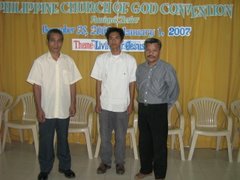
The Sermons of John Wesley
1872 Edition
On Dress
"Whose adorning let it not be that outward adorning of -- wearing of gold, or of putting on of apparel; "But let it be the hidden man of the heart, in that which is not corruptible, even the ornament of a meek and quiet spirit, which is in the sight of God of great price." 1 Pet. 3:3, 4.
1. St. Paul exhorts all those who desire to "be transformed by the renewal of their minds," and to "prove what is that good and acceptable and perfect will of God," not to be "conformed to this world." [Rom. 12:2] Indeed this exhortation relates more directly to the wisdom of the world, which is totally opposite to his "good and acceptable and perfect will." But it likewise has a reference even to the manners and customs of the world, which naturally flow from its wisdom and spirit, and are exactly suitable thereto. And it was not beneath the wisdom of God to give us punctual directions in this respect also.
2. Some of these, particularly that in the text, descend even to the apparel of Christians. And both this text, and the parallel one of St. Paul, are as express as possible. St. Paul's words are, (1 Tim. 2:9, 10,) "I will that women adorn themselves in modest apparel; not -- with gold, or pearls, or costly array; but (which becometh women professing godliness) with good works."
3. "But is it not strange," say some, "that the all-wise Spirit of God should condescend to take notice of such trifles as these? to take notice of such insignificant trifles, things of so little moment, or rather of none at all? For what does it signify, provided we take care of the soul, what the body is covered with, whether with silk or sackcloth? What harm can there be in the wearing of gold, or silver, or precious stones, or any other of those beautiful things with which God has so amply provided us? May we not apply to this what St. Paul has observed on another occasion, that 'every creature of God is good, and nothing to be rejected?'"
4. It is certain, that many who sincerely fear God have cordially embraced this opinion. And their practice is suitable thereto: They make no scruple of conformity to the world, by putting on, as often occasion offers, either gold, or pearls, or costly apparel. And indeed they are not well pleased with those that think it their duty to reject them; the using of which they apprehend to be one branch of Christian liberty. Yea, some have gone considerably farther; even so far as to make it a point to bring those who had refrained from them for some time to make use of them again, assuring them that it was mere superstition to think there was any harm in them. Nay, farther still: A very respectable person has said, in express terms, "I do not desire that any who dress plain should be in our society." It is, therefore, certainly worth our while to consider this matter thoroughly; seriously to inquire whether there is any harm in the putting on of gold, or jewels, or costly apparel.
5. But, before we enter on the subject, let it be observed, that slovenliness is no part of religion; that neither this, nor any text of Scripture, condemns neatness of apparel. Certainly this is a duty, not a sin. "Cleanliness is, indeed, next to godliness." Agreeably to this, good Mr. Herbert advises every one that fears God: --
Let thy mind's sweetness have its operation
Upon thy person, clothes, and habitation.
And surely every one should attend to this, if he would not have the good that is in him evil spoken of.
6. Another mistake, with regard to apparel, has been common in the religious world. It has been supposed by some, that there ought to be no difference at all in the apparel of Christians. But neither these texts, nor any other in the book of God, teach any such thing, or direct that the dress of the master or the mistress should be nothing different from that of their servants. There may, undoubtedly, be a moderate difference of apparel between persons of different stations. And where the eye is single, this will easily be adjusted by the rules of Christian prudence.
7. Yea, it may be doubted, whether any part of Scripture forbids (at least I know not any) those in any nation that are invested with supreme authority, to be arrayed in gold and costly apparel; or to adorn their immediate attendants, or magistrates, or officers, with the same. It is not improbable, that our blessed Lord intended to give countenance to this custom when he said, without the least mark of censure or disapprobation, "Behold, those that wear gorgeous," splendid, "apparel are in kings' courts." (Luke 7:25.)
8. What is then the meaning of these scriptures? What is it which they forbid? They manifestly forbid ordinary Christians, those in the lower or middle ranks of life, to be adorned with gold, or pearls, or costly apparel. But why? What harm is there therein? This deserves our serious consideration. But it is highly expedient, or rather absolutely necessary, for all who would consider it to any purpose, as far as is possible to divest themselves of all prejudice, and to stand open to conviction: Is it not necessary, likewise, in the highest degree, that they should earnestly beseech the Father of Lights, that, "by his holy inspiration, they may think the things that are right, and, by his merciful guidance, perform the same?" Then they will not say, no, not in their hearts, (as I fear too many have done.) what the famous Jew said to the Christian, "Thou shalt not persuade me, though thou hast persuaded me."
9. The question is, What harm does it do, to adorn ourselves with gold, or pearls, or costly array, suppose you can afford it; that is, suppose it does not hurt or impoverish your family? The first harm it does, is, it engenders pride, and, where it is already, increases it. Whoever narrowly observes what passes in his own heart will easily discern this. Nothing is more natural than to think ourselves better because we are dressed in better clothes; and it is scarce possible for a man to wear costly apparel, without, in some measure, valuing himself upon it. One of the old Heathens was so well apprized of this, that, when he had a spite to a poor man, and had a mind to turn his head, he made him a present of a suit of fine clothes.
Eutrapelus, cuicunque nocere voiebat,
Vestimenta dabat pretiosa.
[The following is Boscawen's translation of this quotation from Horace: --
Eutrapelus, whome'er he chose
To ruin, deck'd in costly clothes." -- EDIT.]
He could not then but imagine himself to be as much better as he was finer than his neighbour. And how many thousands, not only lords and gentlemen, in England, but honest tradesmen, argue the same way! inferring the superior value of their persons from the value of their clothes!
10. "But may not one man be as proud, though clad in sackcloth, as another is, though clad in cloth of gold?" As this argument meets us at every turn, and is supposed to be unanswerable, it will be worth while to answer it once for all, and to show the utter emptiness of it. "May not, then, one clad in sackcloth," you ask, "be as proud as he that is clad in cloth of gold?" I answer, Certainly he may: I suppose no one doubts of it. And what inference can you draw from this? Take a parallel case. One man that drinks a cup of wholesome wine, may be as sick as another that drinks poison: But does this prove that the poison has no more tendency to hurt a man than the wine? Or does it excuse any man for taking what has a natural tendency to make him sick? Now, to apply: Experience shows that fine clothes have a natural tendency to make a man sick of pride; plain clothes have not. Although it is true, you may be sick of pride in these also, yet they have no natural tendency either to cause or increase this sickness. Therefore, all that desire to be clothed with humility, abstain from that poison.
11. Secondly. The wearing gay or costly apparel naturally tends to breed and to increase vanity. By vanity I here mean, the love and desire of being admired and praised. Every one of you that is fond of dress has a witness of this in your own bosom. Whether you will confess it before man or no, you are convinced of this before God. You know in your hearts, it is with a view to be admired that you thus adorn yourselves; and that you would not be at the pains were none to see you but God and his holy angels. Now, the more you indulge this foolish desire, the more it grows upon you. You have vanity enough by nature; but by thus indulging it, you increase it a hundred-fold. O stop! Aim at pleasing God alone, and all these ornaments will drop off.
12. Thirdly. The wearing of gay and costly apparel naturally tends to beget anger, and every turbulent and uneasy passion. And it is on this very account that the Apostle places this "outward adorning" in direct opposition to the "ornament of a meek and quiet spirit." How remarkably does he add, "which is in the sight of God of great price!"
Than gold or pearls more precious far,
And brighter than the morning star.
None can easily conceive, unless himself were to make the sad experiment, the contrariety there is between the "outward adorning," and this inward "quietness of spirit." You never can thoroughly enjoy this, while you are fond of the other. It is only while you sit loose to that "outward adorning," that you can in "patience possess your soul." Then only when you have cast off your fondness for dress, will the peace of God reign in your hearts.
13. Fourthly. Gay and costly apparel directly tends to create and inflame lust. I was in doubt whether to name this brutal appetite; or, in order to spare delicate ears, to express it by some gentle circumlocution. (Like the Dean, who, some years ago, told his audience at Whitehall, "If you do not repent, you will go to a place which I have too much manners to name before this good company.") But I think it best to speak out; since the more the word shocks your ears, the more it may arm your heart. The fact is plain and undeniable; it has this effect both on the wearer and the beholder. To the former, our elegant poet, Cowley, addresses those fine lines: --
The' adorning thee with so much art
Is but a barbarous skill;
'Tis like the poisoning of a dart,
Too apt before to kill.
That is, (to express the matter in plain terms, without any colouring,) "You poison the beholder with far more of this base appetite than otherwise he would feel." Did you not know this would be the natural consequence of your elegant adorning? To push the question home, Did you not desire, did you not design it should? And yet, all the time, how did you
Set to public view
A specious face of innocence and virtue!
Meanwhile you do not yourself escape the snare which you spread for others. The dart recoils, and you are infected with the same poison with which you infected them. You kindle a flame which, at the same time, consumes both yourself and your admirers. And it is well, if it does not plunge both you and them into the flames of hell!
14. Fifthly. The wearing costly array is directly opposite to the being adorned with good works. Nothing can be more evident than this; for the more you lay out on your own apparel, the less you have left to clothe the naked, to feed the hungry, to lodge the strangers, to relieve those that are sick and in prison, and to lessen the numberless afflictions to which we are exposed in this vale of tears. And here is no room for the evasion used before: "I may be as humble in cloth of gold, as in sackcloth." If you could be as humble when you choose costly as when you choose plain apparel, (which I flatly deny,) yet you could not be as beneficent, -- as plenteous in good works. Every shilling which you save from your own apparel, you may expend in clothing the naked, and relieving the various necessities of the poor, whom ye "have always with you." Therefore, every shilling which you needlessly spend on your apparel is, in effect, stolen from God and the poor! And how many precious opportunities of doing good have you defrauded yourself of! How often have you disabled yourself from doing good by purchasing what you did not want! For what end did you buy these ornaments? To please God? No; but to please your own fancy, or to gain the admiration and applause of those that were no wiser than yourself. How much good might you have done with that money! and what an irreparable loss have you sustained by not doing it, if it be true that the day is at hand when "every man shall receive his own reward, according to his own labour!"
15. I pray consider this well. Perhaps you have not seen it in this light before. When you are laying out that money in costly apparel which you could have otherwise spared for the poor, you thereby deprive them of what God, the proprietor of all, had lodged in your hands for their use. If so, what you put upon yourself, you are, in effect, tearing from the back of the naked; as the costly and delicate food which you eat, you are snatching from the mouth of the hungry. For mercy, for pity, for Christ's sake, for the honour of his gospel, stay your hand! Do not throw this money away! Do not lay out on nothing, yea, worse than nothing, what may clothe your poor, naked, shivering fellow-creature!
16. Many years ago, when I was at Oxford, in a cold winter's day, a young maid (one of those we kept at school) called upon me. I said, "You seem half-starved. Have you nothing to cover you but that thin linen gown?" She said, "Sir, this is all I have!" I put my hand in my pocket; but found I had scarce any money left, having just paid away what I had. It immediately struck me, "Will thy Master say, `Well done, good and faithful steward?' Thou hast adorned thy walls with the money which might have screened this poor creature from the cold! O justice! O mercy! Are not these pictures the blood of this poor maid?" See thy expensive apparel in the same light; thy gown, hat, head-dress! Everything about thee which cost more than Christian duty required thee to lay out is the blood of the poor! O be wise for the time to come! Be more merciful! more faithful to God and man! more abundantly adorned (like men and women professing godliness) with good works!
17. It is true, great allowance is to be made for those who have never been warned of these things, and perhaps do not know that there is a word in the Bible which forbids costly apparel. But what is that to you? You have been warned over and over, yea, in the plainest manner possible. And what have you profited thereby? Do not you still dress like other people of the same fortune? Is not your dress as gay, as expensive as theirs who never had any such warning? as expensive as it would have been, if you had never heard a word said about it? O how will you answer this, when you and I stand together at the judgment-seat of Christ? Nay, have not many of you grown finer as fast as you have grown richer? As you increased in substance, have you not increased in dress? Witness the profusion of ribands, gauze, or linen about your heads! What have you profited then by bearing the reproach of Christ? by being called Methodists? Are you not as fashionably dressed as others of your rank that are no Methodists? Do you ask, "But may we not as well buy fashionable things as unfashionable?" I answer, Not if they give you a bold, immodest look, as those huge hats, bonnets, head-dresses do. And not if they cost more. "But I can afford it." O lay aside for ever that idle, nonsensical word! No Christian can afford to waste any part of the substance which God has entrusted him with. How long are you to stay here? May not you to-morrow, perhaps to-night, be summoned to arise and go hence, in order to give an account of this and all your talents to the Judge of quick and dead?
18. How then can it be, that, after so many warnings, you persist in the same folly? Is it not hence? There are still among you, some that neither profit themselves by all they hear, nor are willing that others should: And these, if any of you are almost persuaded to dress as Christians, reason, and rally, and laugh you out of it. O ye pretty triflers, I entreat you not to do the devil's work any longer! Whatever ye do yourselves, do not harden the hearts of others. And you that are of a better mind, avoid these tempters with all possible care; and if you come where any of them are, either beg them to be silent on the head, or quit the room.
19. Sixthly. The putting on of costly apparel is directly opposite to what the Apostle terms, "the hidden man of the heart;" that is, to the whole "image of God" wherein we were created, and which is stamped anew upon the heart of every Christian believer; -- opposite to "the mind which was in Christ Jesus," and the whole nature of inward holiness. All the time you are studying this outward adorning, the whole inward work of the Spirit stands still; or, rather, goes back, though by very gentle and almost imperceptible degrees. Instead of growing more heavenly-minded, you are more and more earthly-minded. If you once had fellowship with the Father and the Son, it now gradually declines; and you insensibly sink deeper and deeper into the spirit of the world, -- into foolish and hurtful desires, and grovelling appetites. All these evils, and a thousand more, spring from that one root -- indulging yourself in costly apparel.
20. Why then does not everyone that either loves or fears God, flee from it, as from the face of a serpent? Why are you still so conformable to the irrational, sinful customs of a frantic world? Why do you still despise the express commandment of God uttered in the plainest terms? You see the light: Why do not you follow the light of your own mind? Your conscience tells you the truth: Why do you not obey the dictates of your own conscience?
21. You answer, "Why, universal custom is against me; and I know not how to stem the mighty torrent." Not only the profane, but the religious world, run violently the other way. Look into, I do not say, the theatres, but the churches, nay, and the meetings of every denomination; (except a few old-fashioned Quakers, or the people called Moravians;) look into the congregations, in London or elsewhere, of those that are styled Gospel Ministers; look into Northampton-Chapel; yea, into the Tabernacle, or the chapel in Tottenham-Court Road; nay, look into the chapel in West-Street, or that in the City-Road; look at the very people that sit under the pulpit, or by the side of it; and are not those that can afford it, (I can hardly refrain from doing them the honour of naming their names,) as fashionably adorned, as those of the same rank in other places?
22. This is a melancholy truth. I am ashamed of it: But I know not how to help it. I call heaven and earth to witness this day, that it is not my fault! The trumpet has not "given an uncertain sound," for near fifty years last past. O God! thou knowest I have borne a clear and faithful testimony. In print, in preaching, in meeting the society, I have not shunned to declare the whole counsel of God. I am therefore clear of the blood of those that will not hear. It lies upon their own head.
23. I warn you once more, in the name, and in the presence of God, that the number of those that rebel against God is no excuse for their rebellion. He hath expressly told us, "Thou shalt not follow the multitude to do evil." It was said of a great, good man, he
Fear'd not, had Heaven decreed it, to have stood
Adverse against a world, and singly good.
Who of you desire to share in that glorious character? to stand adverse against a world? If millions condemn you, it will be enough that you are acquitted by God and your own conscience.
24. "Nay, I think," say some, "I could bear the contempt or reproach of all the world beside. I regard none but my own relations, those especially that are of my own household. My father, my mother, my brothers and sisters, (and perhaps one that is nearer than them all,) are teasing me continually." This is a trial indeed; such as very few can judge of, but those that bear it. "I have not strength to bear it." No, not of your own: Certainly you have not. But there is strength laid up for you on "One that is mighty!" His grace is sufficient for you; and he now sees your case, and is just ready to give it you. Meantime, remember his awful declaration, touching them that regard man more than God: "He that loveth father or mother, brother or sister, husband or wife, more than me, is not worthy of me."
25. But are there not some among you that did once renounce this conformity to the world, and dress, in every point, neat and plain, suitable to your profession? Why then did you not persevere therein? Why did you turn back from the good way? Did you contract an acquaintance, perhaps a friendship, with some that were still fond of dress? It is no wonder then that you was, sooner or later, moved to "measure back your steps to earth again." No less was to be expected, than that one sin would lead you on to another. It was one sin to contract a friendship with any that knew not God: For "know ye not that friendship with the world is enmity with God?" And this led you back into another, into that conformity to the world from which ye had clean escaped. But what are you to do now? Why, if you are wise, escape for your life: No delay: Look not behind you! Without loss of time, renounce the cause and the effect together! Now, to-day, before the heart is hardened by the deceitfulness of sin, cut off, at one stroke, that sinful friendship with the ungodly, and that sinful conformity to the world! Determine this day! Do not delay till to-morrow, lest you delay for ever. For God's sake, for your own soul's sake, fix your resolution now!
26. I conjure you all who have any regard for me, show me before I go hence, that I have not laboured, even in this respect, in vain, for near half a century. Let me see, before I die, a Methodist congregation, full as plain dressed as a Quaker congregation. Only be more consistent with yourselves. Let your dress be cheap as well as plain; otherwise you do but trifle with God, and me, and your own souls. I pray, let there be no costly silks among you, how grave soever they may be. Let there be no Quaker-linen, -- proverbially so called, for their exquisite fineness; no Brussels lace, no elephantine hats or bonnets, -- those scandals of female modesty. Be all of a piece, dressed from head to foot as persons professing godliness; professing to do every thing, small and great, with the single view of pleasing God.
27. Let not any of you who are rich in this world endeavour to excuse yourselves from this by talking nonsense. It is stark, staring nonsense to say, "Oh, I can afford this or that." If you have regard to common sense, let that silly word never come out of your mouth. No man living can afford to waste any part of what God has committed to his trust. None can afford to throw any part of that food and raiment into the sea, which was lodged with him on purpose to feed the hungry, and clothe the naked. And it is far worse than simple waste, to spend any part of it in gay or costly apparel. For this is no less than to turn wholesome food into deadly poison. It is giving so much money to poison both yourself and others, as far as your example spreads, with pride, vanity, anger, lust, love of the world, and a thousand "foolish and hurtful desires," which tend to "pierce them through with many sorrows." And is there no harm in all this? O God, arise and maintain thy own cause! Let not men or devils any longer put out our eyes, and lead us blindfold into the pit of destruction!
28. I beseech you, every man that is here present before God, every woman, young or old, married or single, yea, every child that knows good from evil, take this to yourself. Each of you, for one, take the Apostle's advice; at least, hinder not others from taking it. I beseech you, O ye parents, do not hinder your children from following their own convictions, even though you might think they would look prettier if they were adorned with such gewgaws as other children wear! I beseech you, O ye husbands, do not hinder your wives! You, O ye wives, do not hinder your husbands, either by word or deed, from acting just as they are persuaded in their own minds! Above all, I conjure you, ye half-Methodists, you that trim between us and the world, you that frequently, perhaps constantly, hear our preaching, but are in no farther connexion with us; yea, and all you that were once in full connexion with us, but are not so now; whatever ye do yourselves, do not say one word to hinder others from receiving and practising the advice which has been now given! Yet a little while, and we shall not need these poor coverings; for this corruptible body shall put on incorruption. Yet a few days hence, and this mortal body shall put on immortality. In the mean time, let this be our only care, "to put off the old man," -- our old nature, -- "which is corrupt," -- which is altogether evil, -- and to "put on the new man, which after God is created in righteousness and true holiness." In particular, "put on, as the elect of God, bowels of mercies, kindness, gentleness, longsuffering." Yea, to sum up all in one word, "put on Christ;" that "when he shall appear, ye may appear with him in glory."
 Ito ang tunay kong karanansan na nangyari noong di ko pa nakikilala ang Diyos. Marami akong mga bisyo tulad ng sugal, pambabae, pag-inom ng alak. Lahat ng mga ito ay lagi kong ginagawa sa araw-araw dahil ang akala ko tama ang lahat ng mga ito kaya ko ginagawa.
Ito ang tunay kong karanansan na nangyari noong di ko pa nakikilala ang Diyos. Marami akong mga bisyo tulad ng sugal, pambabae, pag-inom ng alak. Lahat ng mga ito ay lagi kong ginagawa sa araw-araw dahil ang akala ko tama ang lahat ng mga ito kaya ko ginagawa.

 Mga minamahal na kapatid sa pananampalataya, mga magulang at mga kaibigan, ibig kong ipatotoo sa inyo ang dakilang pag-ibig na ipinakita ng Panginoon sa akin. Nawa ay maging pagpapala ito sa lahat ng makakabasa lalo na sa mga kabataan at makita nating lahat na totoong may Dios na nagmamahal sa kabila ng ating paglimot.
Mga minamahal na kapatid sa pananampalataya, mga magulang at mga kaibigan, ibig kong ipatotoo sa inyo ang dakilang pag-ibig na ipinakita ng Panginoon sa akin. Nawa ay maging pagpapala ito sa lahat ng makakabasa lalo na sa mga kabataan at makita nating lahat na totoong may Dios na nagmamahal sa kabila ng ating paglimot.



















































































































